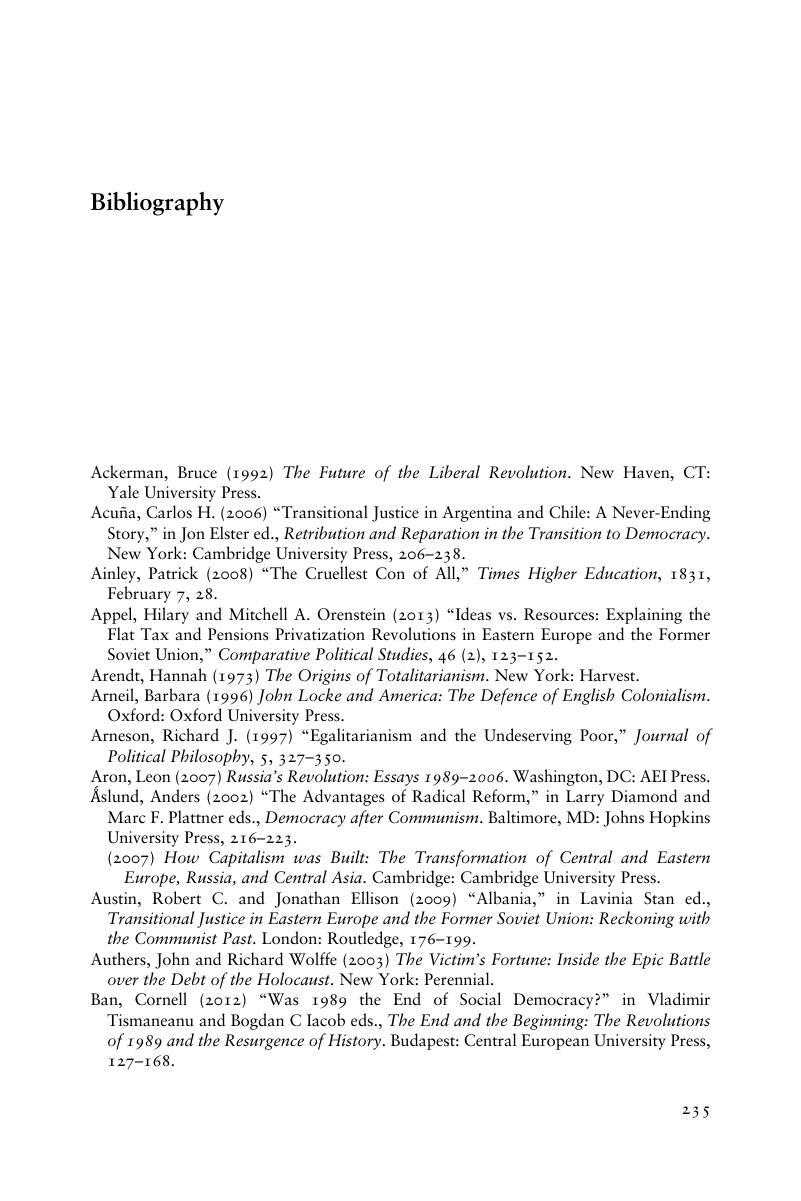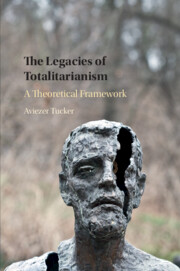Book contents
- The Legacies of Totalitarianism
- Advance praise forThe Legacies of Totalitarianism
- The Legacies of Totalitarianism
- Copyright page
- Dedication
- Contents
- Book part
- Introduction
- 1 Post-Totalitarianism
- 2 Post-Totalitarian Rough Justice
- 3 Rough Justice
- 4 Rough and Shallow
- 5 The New Politics of Property Rights
- 6 Old to New Totalitarianism
- 7 Short-Circuiting Reason
- Conclusion
- Bibliography
- Index
- References
Bibliography
Published online by Cambridge University Press: 05 November 2015
- The Legacies of Totalitarianism
- Advance praise forThe Legacies of Totalitarianism
- The Legacies of Totalitarianism
- Copyright page
- Dedication
- Contents
- Book part
- Introduction
- 1 Post-Totalitarianism
- 2 Post-Totalitarian Rough Justice
- 3 Rough Justice
- 4 Rough and Shallow
- 5 The New Politics of Property Rights
- 6 Old to New Totalitarianism
- 7 Short-Circuiting Reason
- Conclusion
- Bibliography
- Index
- References
Summary

- Type
- Chapter
- Information
- The Legacies of TotalitarianismA Theoretical Framework, pp. 235 - 255Publisher: Cambridge University PressPrint publication year: 2015



